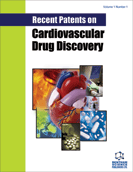Abstract
Brain natriuretic peptide (BNP) plays an important role in cardiovascular homeostasis. Plasma BNP increases markedly in left ventricular dysfunction from several causes, and its levels in heart failure (HF) correlate with symptoms severity. BNP has recently emerged as a potentially important clinical marker for the diagnosis of HF in patients with unexplained dyspnea. Other clinical applications of BNP, such as screening for asymptomatic ventricular dysfunction, establishing the prognosis or guiding the titration of drug therapy, are under investigation and have not yet been sufficiently validated for widespread clinical use. Laboratory-based and point-of-care analyses are available for BNP and N-terminal proBNP as fully-automated immunoassays. Several patented inventions and reagents for the diagnosis of various heart pathologies provide helpful information, particularly in conjunction with other clinical tests. They also have prognostic value for future cardiovascular events. Patents owned by Scios Inc. recommended recombinant BNP for managing acute decompensated HF. However, this treatment apparently has safety problems and no proven clinical advantage over existing treatments in terms of improved survival and prevention of subsequent hospitalizations.
Keywords: Human brain natriuretic peptide, atrial natriuretic peptide, BNP 32, NT-proBNP, heart failure, diagnosis, prognosis, treatment
 3
3


